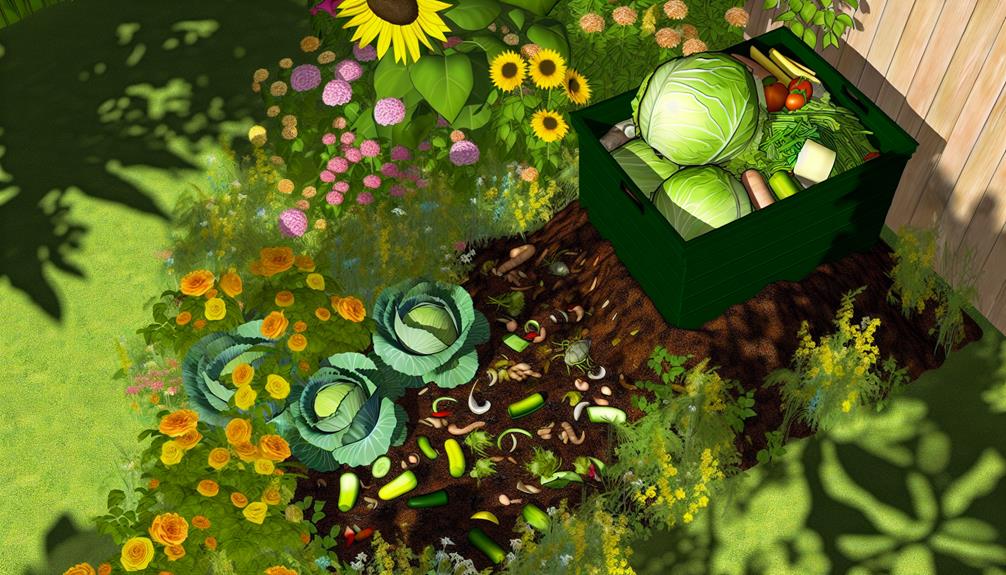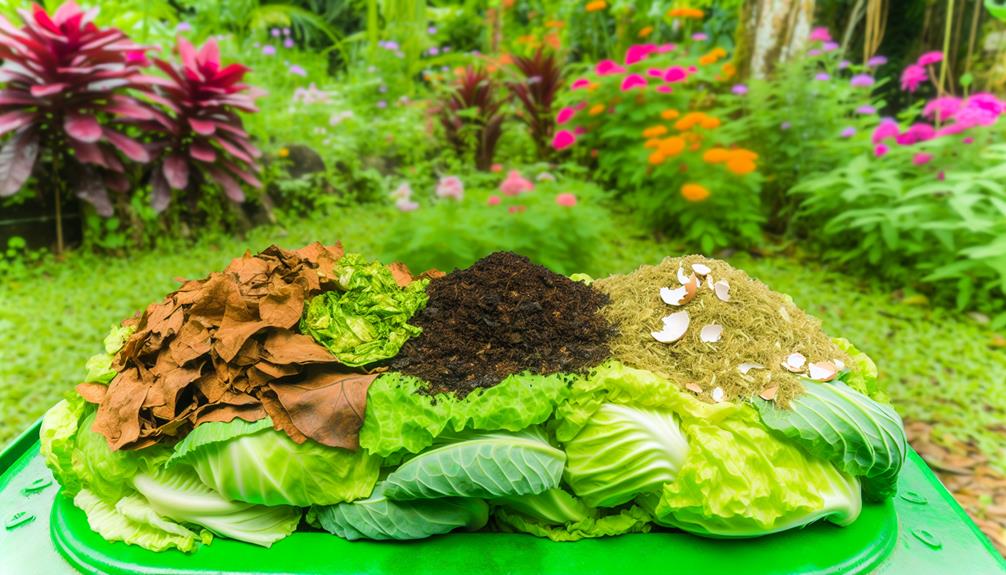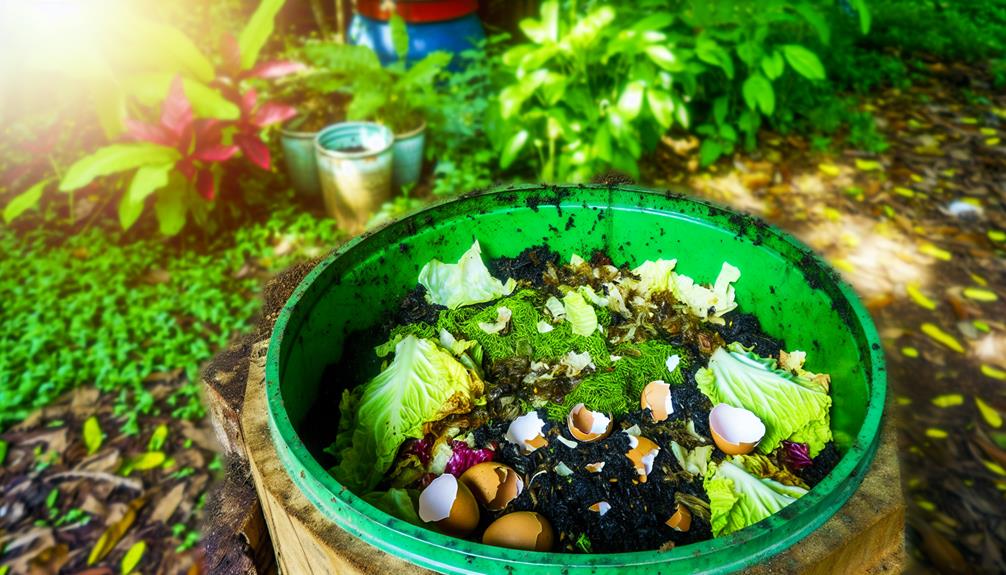

You can definitely compost cabbage, and it’s a fantastic way to boost your garden’s health! Start by chopping the cabbage into smaller pieces to speed up decomposition. Mix it into your compost pile, but remember to balance it with carbon-rich materials like dry leaves or shredded paper to keep things from getting too moist.
This balance helps with air circulation and keeps odors at bay. Aerate your pile regularly to promote microbial activity, ensuring efficient breakdown. By composting cabbage, you enrich the soil with nutrients, retain moisture, and promote strong plant growth. Want to make your composting even more efficient?
Composting cabbage offers numerous benefits, including enriching your soil with essential nutrients. When you compost cabbage, you’re not just reducing kitchen waste; you’re also creating a rich, organic material that enhances soil fertility.
This enriched soil promotes stronger plant growth, resulting in vibrant, healthy gardens. Additionally, composting cabbage helps retain moisture in the soil, which can reduce the need for frequent watering.
By incorporating cabbage into your compost, you’re also fostering a sense of community and environmental stewardship. It’s a simple act that connects you to a larger movement focused on sustainability and eco-friendly practices.
Plus, seeing the tangible benefits in your garden can be incredibly rewarding, reinforcing your commitment to a greener lifestyle.
Also Read: Can You Compost Baking Soda?
Before adding cabbage to your compost, you’ll need to prepare it properly to guarantee efficient decomposition. Start by chopping the cabbage into smaller pieces; this increases the surface area, helping microorganisms break it down faster.
Make sure to remove any non-organic materials, like stickers or rubber bands, that might be attached. Rinse the cabbage if it’s dirty, making certain no pesticides or chemicals enter your compost.
Once cleaned and chopped, you can mix the cabbage pieces into your compost pile. This step ensures that the cabbage will blend well with other compost materials, creating a balanced environment for decomposition.
Preparing cabbage this way connects you to a community of eco-conscious gardeners working towards a sustainable future.
To guarantee your compost thrives, balance the nitrogen-rich cabbage with carbon-rich materials like dry leaves, straw, or shredded paper. These ‘browns’ help absorb moisture and provide structure, promoting air circulation and preventing unpleasant odors.

Here’s a quick reference table to guide you:
| Material | Type | Examples |
|---|---|---|
| Nitrogen-rich | Greens | Cabbage, grass clippings |
| Carbon-rich | Browns | Dry leaves, straw, paper |
| Balanced Mix | Combination | Kitchen scraps and garden waste |
When you layer your compost, aim for a ratio of about 2:1 browns to greens. This balance ensures that the composting process remains efficient, fostering a sense of accomplishment as you contribute to a healthier environment.
Also Read: Can You Compost Ash?
Have you ever wondered why your compost pile isn’t breaking down as quickly as you’d like? One common issue is an imbalance between green and brown materials. If you have too much cabbage and other greens, your pile might get too wet, slowing decomposition. To fix this, mix in dry leaves or shredded paper.
Another problem is poor aeration; without enough oxygen, the pile goes anaerobic and smells bad. Turn your compost regularly to keep it well-aerated.
Finally, temperature matters. If it’s too cold, decomposition slows. Make sure your pile is large enough to retain heat, and consider covering it to help maintain warmth.
Also Read: Can You Compost Alcohol?
Enhancing your compost pile’s conditions can greatly accelerate the decomposition process. To guarantee your cabbage and other materials break down efficiently, focus on creating an environment that supports microbial activity.

Composting cabbage is a fantastic way to enrich your garden soil while reducing waste. By properly preparing and balancing cabbage with other materials, you can create nutrient-rich compost that benefits your plants.
Addressing common issues and enhancing the decomposition process guarantees efficient composting. So, delve into composting cabbage, embrace its benefits, and watch your garden thrive.
You’ll be amazed at how this simple practice can transform your gardening experience!
